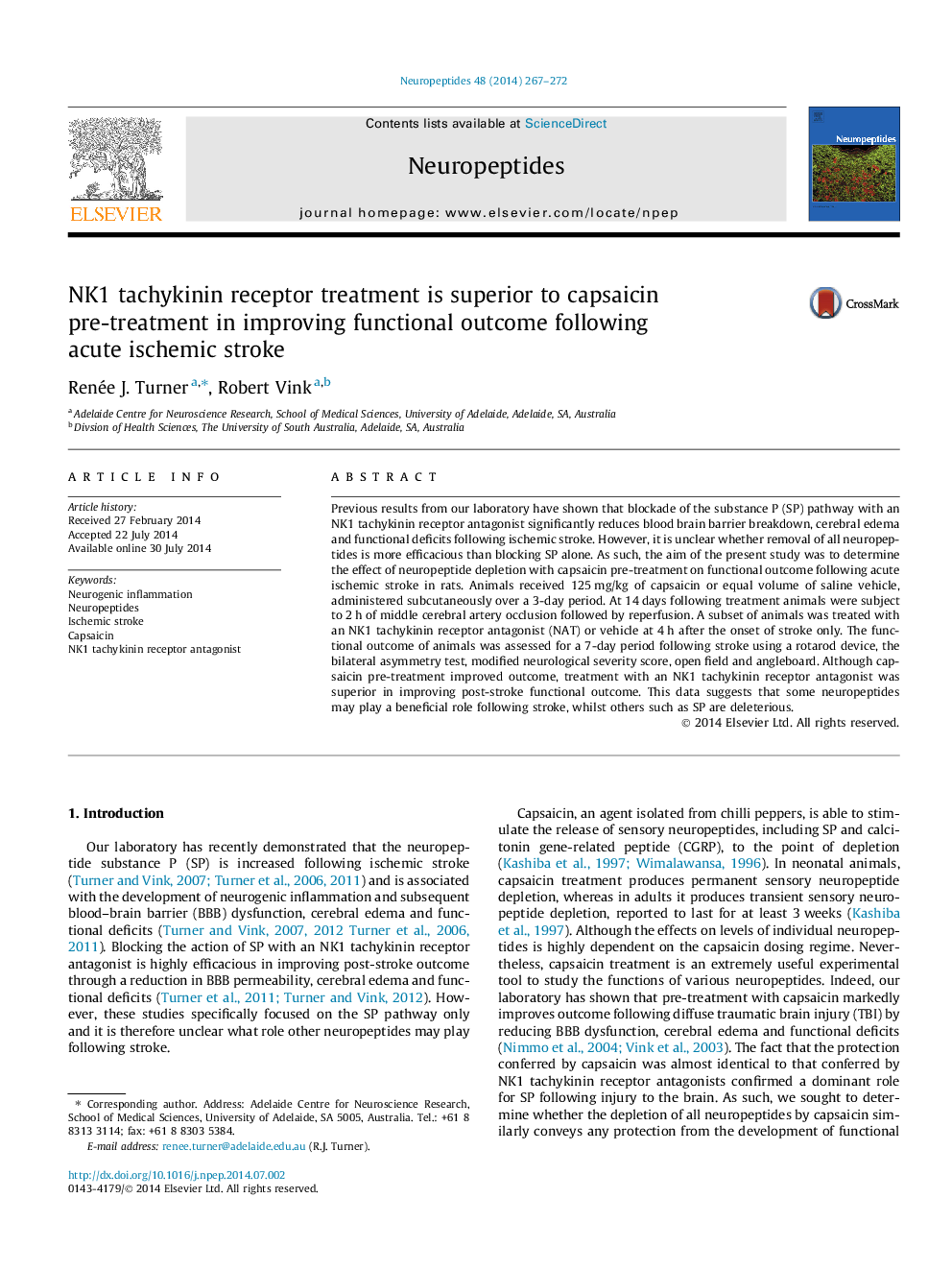| Article ID | Journal | Published Year | Pages | File Type |
|---|---|---|---|---|
| 2808032 | Neuropeptides | 2014 | 6 Pages |
•NK1 receptor antagonist improves outcome.•NK1 receptor antagonist superior to capsaicin pre-treatment.•Blocking the action of neuropeptides post-stroke improves functional outcome.
Previous results from our laboratory have shown that blockade of the substance P (SP) pathway with an NK1 tachykinin receptor antagonist significantly reduces blood brain barrier breakdown, cerebral edema and functional deficits following ischemic stroke. However, it is unclear whether removal of all neuropeptides is more efficacious than blocking SP alone. As such, the aim of the present study was to determine the effect of neuropeptide depletion with capsaicin pre-treatment on functional outcome following acute ischemic stroke in rats. Animals received 125 mg/kg of capsaicin or equal volume of saline vehicle, administered subcutaneously over a 3-day period. At 14 days following treatment animals were subject to 2 h of middle cerebral artery occlusion followed by reperfusion. A subset of animals was treated with an NK1 tachykinin receptor antagonist (NAT) or vehicle at 4 h after the onset of stroke only. The functional outcome of animals was assessed for a 7-day period following stroke using a rotarod device, the bilateral asymmetry test, modified neurological severity score, open field and angleboard. Although capsaicin pre-treatment improved outcome, treatment with an NK1 tachykinin receptor antagonist was superior in improving post-stroke functional outcome. This data suggests that some neuropeptides may play a beneficial role following stroke, whilst others such as SP are deleterious.
